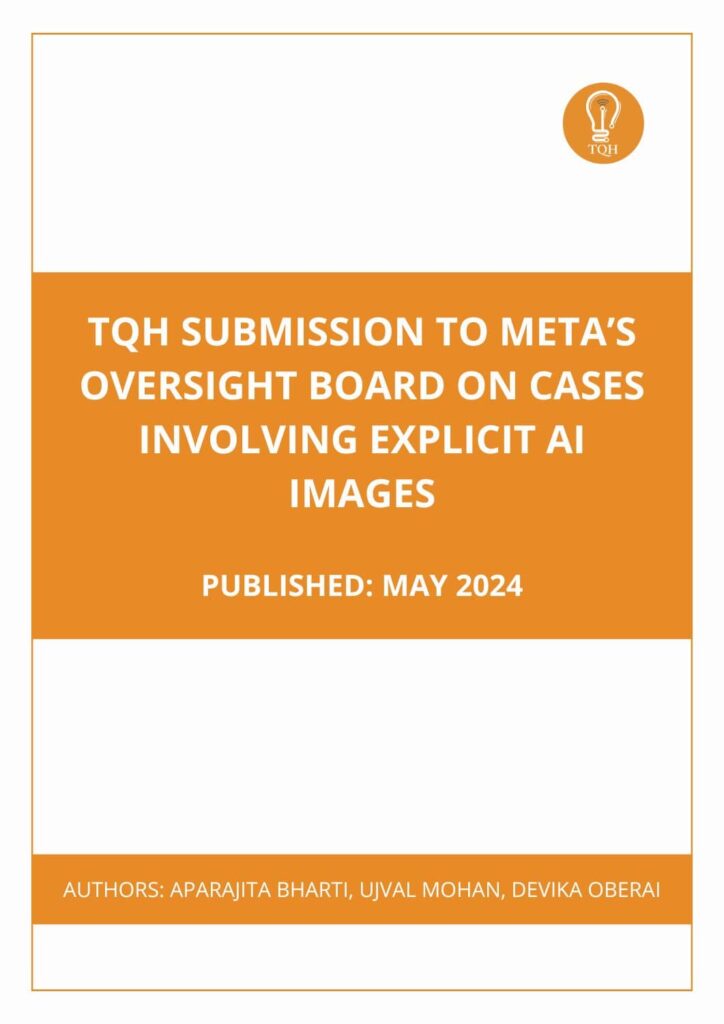Date:
May 2024
Author/s:
Aparajita Bharti, Ujval Mohan, and Devika Oberai
TQH Submission to Meta’s Oversight Board on Cases involving Explicit AI Images
On April 16, Meta’s Oversight Board announced its review of two cases involving Meta’s content moderation of AI-generated explicit images of women (#Deepfakes). Nicknamed the “Supreme Court” of Facebook at its launch, the Board invited public comments to scrutinize the initial uneven handling of cases in the US and India, aiming to ensure fair protection for women globally with the advent of GenAI.
In response, The Quantum Hub (TQH) has submitted recommendations to Meta’s Oversight Board. We recommend that Meta improve the design of reporting tools available on its platforms to allow users to give more context to their reports. Additionally, we recommend slowing the spread of content that starts to be reported by users (particularly in this category) as an interim protective measure and discontinuing its policy of automatically closing appeals within 48 hours.
Various studies indicate that a significant majority of deep fake content (over 90%) targets women with sexualized or derogatory material. Our response also considers contextual factors within India’s social norms, where online abuse and reputational harms can readily translate into real-world consequences for women. We have also drawn on insights from both our gender practice and technology practice to inform this submission.
